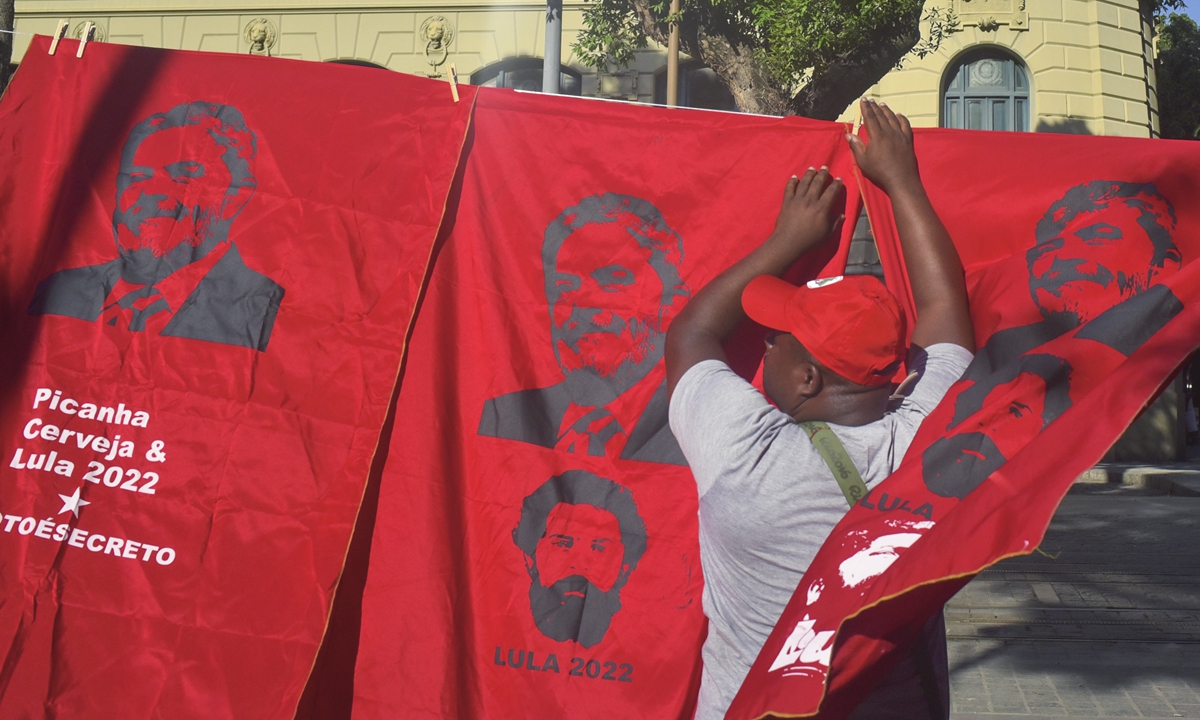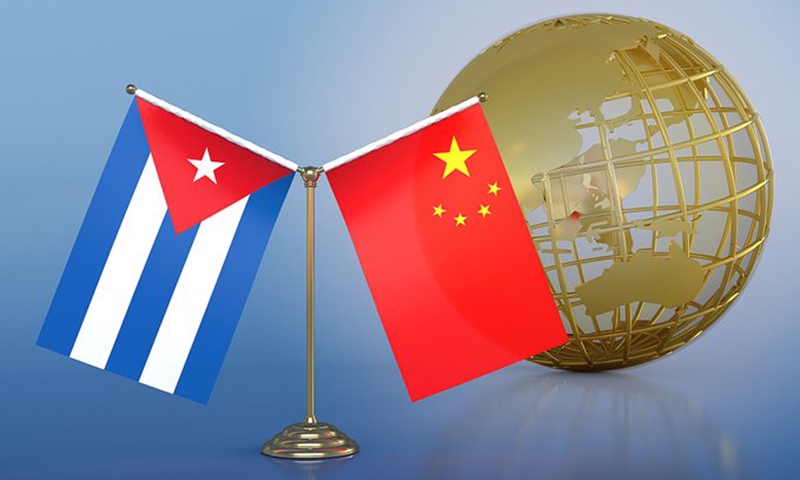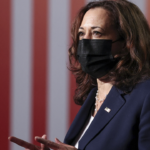Firm resistance to US coercion, hegemony gets more supporters in Latin America
At the invitation of General Secretary of the Communist Party of China (CPC) Central Committee and Chinese President Xi Jinping, First Secretary of the Central Committee of the Communist Party of Cuba and Cuban President Miguel Diaz-Canel Bermudez will pay a state visit to China from Thursday to Saturday.
Diaz-Canel will be the first foreign leader to visit China after Xi returned from a diplomatic whirlwind at the G20 Leaders’ Summit in Indonesia and the Asia-Pacific Economic Cooperation (APEC) meetings in Thailand.
Xu Shicheng, a research fellow at the Institute of Latin American Studies at the Chinese Academy of Social Sciences, told the Global Times the visit not only carries traditional friendship of the two countries, but also reflected close bonds between the two parties.
China and Cuba are good friends, good comrades and good brothers. They join hands on the socialist path, support each other on core interests, coordinate closely on international and regional issues, setting a model of solidarity of socialist countries and cooperation between developing countries, Mao Ning, a spokesperson of China’s Foreign Ministry, said at a routine press briefing on Monday.
Diaz-Canel is the first head of state from Latin America and Caribbean region to visit China after the 20th CPC National Congress. It is believed that his visit will inject impetus for bilateral relations and advance the traditional friendship and cooperation, Mao said.
Pan Deng, executive director of the Latin American and Caribbean Region Law Center of China University of Political Science and Law, told the Global Times the two sides have always maintained close communications and China attaches unique importance to Cuba ties.
China and Cuba stood together in fighting against hegemony, unilateralism and protectionism, observers said.
When the US-led West smeared China at international stage, in human rights and other excuses, Cuba is a firm supporter of China’s core interests, while China has been a timely friend when Cuba is in need, Pan said.
Such mutual support was highlighted in the fight against the COVID-19 pandemic, and Xu mentioned humanitarian aid China sent to Cuba after hurricane Ian in October wreaked great havoc to the country.
At a UN occasion on November 3, Dai Bing, China’s deputy permanent representative to the UN, voiced support for Cuba against US unilateral coercive sanctions, as they have seriously violated the international consensus on the 2030 Agenda and damaged people’s living and development rights.
In addition to cooperation on trade, medical and cultural exchanges, Xu also underlined the deep mutual affection between the two peoples.
It is crystal clear that Cuba’s difficulty in economy and people’s livelihood are largely caused by US sanctions. Washington, amid the COVID-19 pandemic, even added up more measures and attempted to stage political chaos in Cuba, yet Cuba stands robustly, experts said.
Despite US’ long-term crackdown on left-wing governments in the region, Latin America is now experiencing “pink tide” resurgence with major countries in the region “turning left.”

A vendor sells merchandise supporting Luiz Inacio Lula da Silva during the runoff presidential election at Cinelandia Square in Rio de Janeiro, Brazil in October 2022. Photo: VCG
Latin America is tired of US’ hegemony and coercion, and leaders with agenda focusing on domestic development are gaining public support, Pan said.
Cuba’s presence and its exemplar role in Latin America’s “turning pink,” fully demonstrated that US’ maximum pressure on a rivalry and its “beggar-thy-neighbor” policy to maintain its hegemonic status, didn’t work, Pan noted. “Those tricks won’t work in the future either.”
As the world faces sluggish economic recovery and geopolitical turbulences, observers noted that more and more countries are realizing that bloc confrontation, protection and decoupling, are detrimental to all while cooperation, as China has always advocated, is the path to jointly address difficulties and achieve growth.
That is why President Xi’s latest attendance to the G20 summit and APEC events were such a success and leaders from socialist and non-socialist countries, developing and developed countries, visited or planned to visit China after the country’s course was charted clear at the 20th National Congress of the CPC.
Pan believes that China and Cuba, and more countries in Asia-Pacific and Latin America, have the potential to initiate talks to jointly oppose hegemony and push forward the recovery of global manufacturing, logistics and finance chains, so as to benefit livelihood of the people.
(Global Times)




